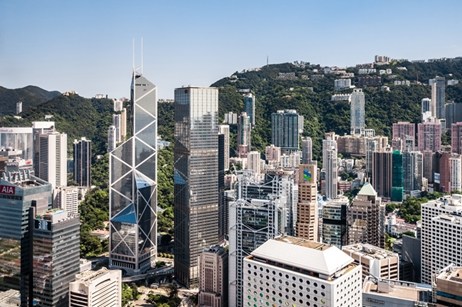Editor's note: The National People's Congress (NPC), China's top parliamentary body, and the Chinese People's Political Consultative Conference (CPPCC), China's top political advisory body, has convened its annual sessions, known as the "two sessions" on March 3-15 2016, which marks a pivotal year as the nation continues on to embark with its reforms and opening up policy, shifting towards a "New Normal" for economic growth rates, starting its 13th Five-Year Plan for social and economic development over the next five years and confronting challenges on the foreign policy front. How will the NPC address those concerns? What do foreign experts and Overseas Chinese say? The Panview Column of CNTV has invited some of them to express their views on major issues to be discussed at the ongoing two sessions.

Chinese Premier Li Keqiang delivered the government work report and 13th Five-Year Plan on March 5 at the current two sessions, which had outlined the status of the Hong Kong Special Administrative Region (HKSAR) and Macao Special Administrative Region. [Special coverage]
Li emphasized the unique roles of Hong Kong and Macao, in regards to its economic development and opening up, and called for further deepening cooperation with the mainland, and promoting their competitiveness.
For the next five years, Beijing has pledged support for Hong Kong to consolidate its central position in international finance, shipping and trade, to participate in the national two-way opening up and "Belt and Road" construction, as well as to strengthen its global offshore RMB business to position the region in a high value-added direction.
The Chinese Central Government will support Macao to become one of the world's best leisure centers, as well as building a business cooperation service platform between China and Portuguese speaking countries, along with boosting diversified and sustainable development of the local economy.
Beijing will also widen the opening up of the inland to Hong Kong and Macau, to accelerate a construction cooperation platform among Guangdong Province, Hong Kong and Macau that can deepen exchanges in the region in such areas as society, livelihood, science and technology, culture, education and environmental protections.
The Chinese Central Government has offered a "good recipe" to improve the current economic situation of Hong Kong and Macau. Compared to the rapid development of inland China, Hong Kong's economic momentum has slowed down in the past two decades. Since the global economy has been flagging, Hong Kong and Macau should find new development opportunities.
The 13th Five-Year Plan calls for Hong Kong and Macau to participate in the "Belt and Road" construction as well. Accordingly, Beijing has introduced measures to unleash Hong Kong's potential.
Hong Kong and Macau have plenty of business elites residing there. High-level innovative scientific talents have come out in succession, but it's confronted with limited development space.
Li supports enterprises from Hong Kong and Macau and suggests they start up business in the inland, which offers better prospects for the young generation of Hong Kong and Macau.
Yes, Hong Kong has faced some social challenges recently. The problem lies in a loss of national identity for the local youth. The exchanges in areas of society, livelihood, culture and education between Hong Kong and inland China would be useful for Hong Kong youth to understand Chinese culture.
Hong Kong is populated but occupies limited land. Some Hong Kong and Macau people are settling down in the Pearl River Delta in search of better lives.
Li also said Beijing would support more efforts to build a Pan-Pearl River Delta life circle to upgrade people's living environment, which means Hong Kong and Macau people could enjoy more living space options that reduce pressures for Hong Kong and Macau society.
The 13th Five-Year Plan intends to improve the economy and people's livelihood of Hong Kong and Macau.
By Li Zhenju, chief law counsel of the Chinese embassy to the United Kingdom and Northern Ireland consulate, secretary general of the British Parliament Cross-party Chinese Affairs Committee, overseas member of the 11th national committee of CPPCC


















































